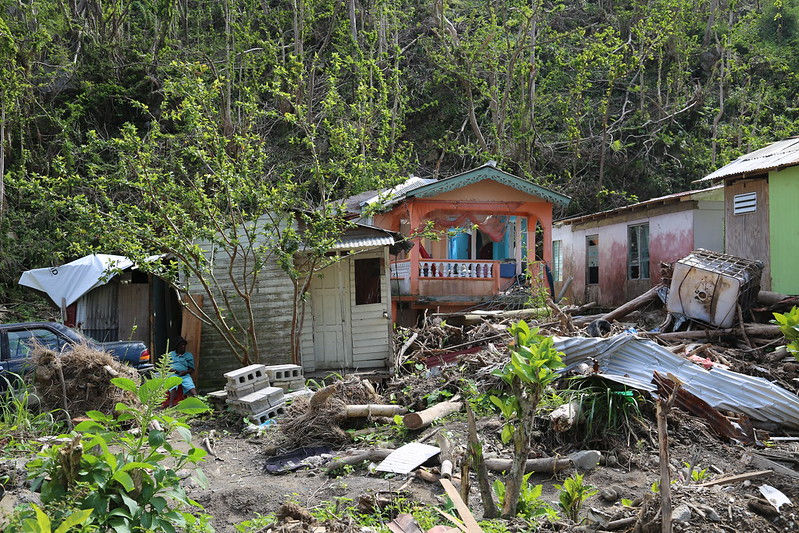Facing Annihilation Dominica Eyes Leading World in Climate Resiliency
- Farah Al Jallad
- Aug 15, 2021
- 3 min read
Updated: Oct 4, 2021
The IPCC recently released a report warning of climate dangers projected to increase in the years ahead and small island nations like Dominica are on the front lines of the crisis. It highlighted that if there isn’t an immediate and sustained reduction in greenhouse gas emissions, the effects could become irreversible. According to the report, global temperatures will rise by 1.5 degrees Celsius or more during the next 20 years. Scientists warn that if temperatures are near 1.5 degrees and even reach 2 degrees, combating global warming and reversing the effects of climate change will become impossible.
Scientists are looking to the past as an indication of what we could see in the future if global temperatures continue to rise. The last time Earth witnessed such a dramatic increase in temperature was 125,000 years ago, during the Last Interglacial period. As global temperatures rise, severe natural disasters will increase, and more radical changes are expected to emerge over the coming years.
“This report is a reality check,” said Valérie Masson-Delmotte, IPCC Working Group I Co-Chair. “We now have a much clearer picture of the past, present and future climate, which is essential for understanding where we are headed, what can be done and how we can prepare.”
The most vulnerable regions are already experiencing the disastrous consequences of climate change. Despite contributing relatively little to global emissions, small island nations are at significant risk because of hazards such as sea-level rise, marine heatwaves and hurricanes. In addition, coastal communities and environments are at considerable risk as they’re completely exposed to intensifying climate threats. As a result, small island peoples are forced to confront and remedy a crisis they did not cause but which has the greatest impact on them.
"Small countries like Dominica have done little to hyperbolize the climate crisis," said Dominica's Minister of Environment, Honourable Cozier Frederick, Rural Modernisation and Kalinago Upliftment. "Instead, we in Dominica are on our way to climate resilience because we have no other choice. We are left fending for ourselves. Global leaders need to live up to their climate commitments, otherwise, climate catastrophe will worsen for us all."
In the wake of the destruction caused by Hurricane Maria in 2017, Dominica's Prime Minister Roosevelt Skerrit announced that the island will become the world's first climate-resilient nation. As natural disaster incidents are expected to increase and intensify, climate resiliency will benefit Dominica in better anticipating, recovering and adapting to the impacts of climate change.
[Like what you read in The Carbonic? Help support climate journalism by donating ]
In recent years, the country has taken initiative and used its Citizenship by Investment Unit (CBIU), which wealthy investors fund in exchange for second citizenship, to construct weather-resistant housing, sustainable infrastructure, and a geothermal plant. The program also invests in a Vulnerable Resiliency Fund, which will provide financial assistance to the country in the event of natural disasters.
Currently, Dominica is on track to construct over 5,000 weather-resistant homes, with 25% already completed. The updated buildings are being built with a concrete roof able to resist strong winds better than galvanized metal. The government also recently announced that the first geothermal project would be completed in 2022.
The Climate Resilience Execution Agency for Dominica, otherwise known as CREAD, is also implementing new targets that include a “holistic” approach, which means increasing community awareness. They’re doing this by educating their citizens about the environmental risks and what they can do to better protect themselves and their communities. This goal also includes having enough food, water, power, communication and primary healthcare available for 15 days after a natural disaster to survive if they become disconnected from the rest of the island.
Drop a line to contact@thecarbonic.com for newsletter subscriptions, tips, questions or comments.















Comments